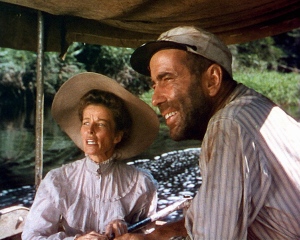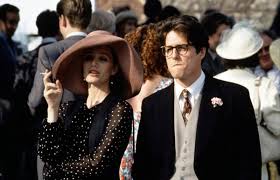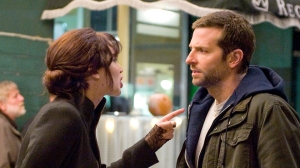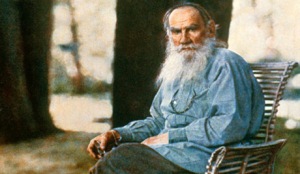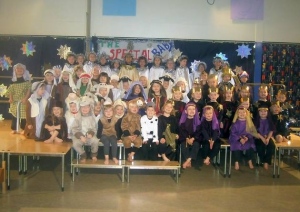Spring is under way. Birds are singing, bees are buzzing, and love is in the air. Which seems like a good excuse to write about rom-coms. It’s easy to be uppity about rom-coms. They’re arguably the most formulaic of screenplays and generally tend to follow the format of boy meets girl, boy gets girl, girl and boy fall out, girl and/or boy must learn an important life lesson in order for true love to triumph. All sounds dead simple, but the writing a good one, which is say one that’s fresh and original, has the right balance of light and shade and is as light as freshly baked choux bun, is a very hard trick to pull off.
So anyway – here are my personal favourites. And hats off to all the brilliant writers!
The Philadelphia Story, 1940 – written by Donald Ogden Stewart, directed by George Cukor
James Stewart won an Oscar for playing ‘Mike’ Macauley Connor, but the stand-out performance for me is the inimitable Katherine Hepburn in the role of Tracy Lord, a New England socialite with unrealistically high expectations both of herself and her men. Add Cary Grant at his most debonair, and a script which sparkles with witty one-liners and you have a movie that’s not only romantic and funny, but also definitely for grown-ups.
The African Queen, 1951 – written and directed by John Huston
Hepburn again, this time doing verbal battle with Humphrey Bogart as she tries to convince him that it would be a good idea to turn a clapped out old tramp steamer into a lethal weapon, with which to blow up the Germans she holds responsible for the death of her brother. Much of the film was famously shot in technicolour on location in Uganda – a testing experience for all involved. The original African Queen was fully restored in 2012 and is now on display in a museum in Florida.
Roman Holiday, 1953 – written by John Dighton and Dalton Trumbo, directed by William Wyler
Could this be the best-looking film of all time? Gregory Peck and Audrey Hepburn enjoy a romantic dalliance while scooting around the fabulous city of Rome on a vespa. This was Audrey Hepburn’s first major role; she went on to win an Oscar, a Golden Globe and a BAFTA – the first ever actress to net all three awards for the same performance. As rom-coms go, it’s one of the sweetest ever made.
Some Like it Hot, 1959 – written by IAL Diamond, directed by Billy Wilder
If I had an all-time favourite movie, this might be it. Marilyn Monroe at her most luminous as a ditsy banjo player intent on catching herself a millionaire, and Jack Lemmon and Tony Curtis competing for her affections but unable to declare themselves because they’re both disguised as women and on the run from the mob. To top it all, when Lemmon finally reveals to his ‘fiance’ that they can’t get married because he too is a man, he gets perhaps the most famous riposte in film history – “well nobody’s perfect!” The film however, pretty much is.
When Harry Met Sally, 1989. Written by Nora Ephron, directed by Rob Reiner
Can men and women ever just be friends? Most of the film consists of Meg Ryan and Billy Crystal debating this question – and repeatedly coming up against their very different views on sex and relationships. For the audience, however, it’s pretty clear they’re made for each other from the outset, when they sit down to supper in a diner on the road from Chicago to New York. This is the first movie that Nora Ephron both wrote and produced and it put her firmly on the path to becoming the queen of the modern, sassy rom-com. It did Meg Ryan no harm either.
Four Weddings and Funeral, 1994. Written by Richard Curtis, directed by Mike Newell
The first and for my money, still the best of Richard Curtis’s movies, it’s a film that captures perfectly that stage in life when everyone seems to be getting married and you wonder if it’ll ever happen to you. My sister got married in the chapel at Greenwich naval college the following year, which was used as the location for the first of the four weddings. The film also brought Kristen Scott-Thomas to international prominence, which has to have been a good thing!
Groundhog Day, 1993. Written by Danny Rubin and Harold Ramis, directed by Harold Ramis.
While most rom-coms tend to foreground the romance, over the comedy, this one does the opposite – with hilarious results. From a writing perspective it pulls off an extraordinary trick – having a character literally doing the same thing day after day, but still managing to keep the whole thing surprising and briskly paced. If you ever wanted proof that rom coms can also be highly original, this is it. And of course it helps that this gem also stars Bill Murray at his deadpan best.
Overboard, 1987. Written by Leslie Dixon, directed by Garry Marshall.
Although not universally acclaimed, I’ve always had a soft spot for this one. The whole thing is very good natured, and real-life husband and wife, Kurt Russell and Goldie Hawn, bring charisma and a huge amount of genuine personal chemistry to the mix. Throw in a bunch of adorable kids and it hits all the right feel-good buttons. I also really like the way the writer creates characters whose weaknesses turn out to be real strengths, while remaining completely true to themselves.
Pride and Prejudice, 2005. Written by Deborah Moggach, directed by Joe Wright.
An argument could definitely be made for Jane Austen as the originator of the female-driven rom-com. The aim of this version was to bring Austen’s very well-known story up-to-date by casting young, relatively unknown leads and giving a very – indeed often literally – down-to-earth portrait of Austen’s England. However you dress it up, there’s something completely irresistible about the story of Lizzie Bennet, who defies her parents and insists on a marriage of equals based on genuine love and respect, rather than status or money.
Silver Linings Playbook, 2012. Written and directed by David O. Russell
If further proof were needed that even today, it’s still possible to come up with a fresh take on the rom-com, this is it. David O. Russell’s edgy script explores how it’s often only our own neuroses that stand in the way of true love. If a terrific script weren’t enough, two hours in the company of Bradley Cooper and Jennifer Lawrence is an added bonus. It’s not surprising that Jennifer Lawrence won an acting Oscar for her performance here and Bradley Cooper is genuinely moving. Comedy is supplied by his football-obsessed dad, played by Robert de Niro and Jacki Weaver as his sharp-tongued mother. Oh and it also has some pretty impressive dance scenes too!
So that’s it – my top ten rom-coms. Any other suggestions?

